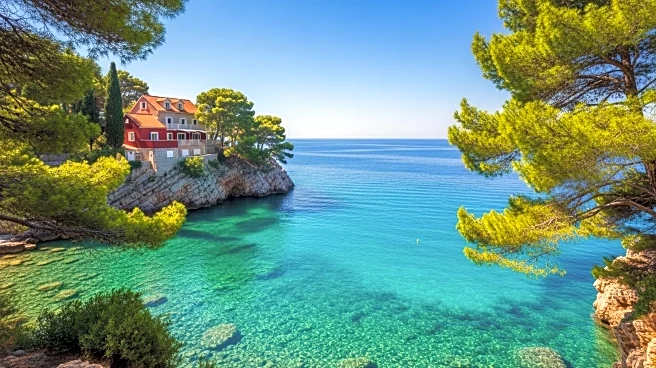What's Happening?
Croatia's tourism industry, a significant contributor to the country's GDP, is facing challenges due to rising costs and economic pressures. The Croatian Central Bureau of Statistics reported a 4.1% increase in consumer prices in July 2025 compared to the previous year, with accommodation costs rising by 50% over three years. This has made Croatia less attractive to budget-conscious travelers, particularly from key markets like Germany, Austria, and Italy. The shift from traditional hotels to private rentals has also impacted service quality and oversight, raising concerns about the sustainability of the tourism sector.
Why It's Important?
Tourism is crucial to Croatia's economy, accounting for about a fifth of its GDP. The rising costs threaten to reduce the country's competitiveness in the Mediterranean tourism market, potentially leading to a decline in international visitors. This situation could have significant economic implications, affecting employment and revenue in the tourism sector. The affordability issue also highlights broader economic challenges, such as the impact of adopting the euro and the need for wage growth to keep pace with rising living costs. Addressing these challenges is vital to maintaining Croatia's position as a desirable tourist destination.
What's Next?
The Croatian Ministry of Tourism is taking steps to address the affordability issue by regulating the growth of tourist accommodations and promoting off-peak travel. Efforts are also underway to improve service quality and ensure that prices align with the value offered. The ministry aims to shift towards a more sustainable tourism model that balances economic growth with environmental protection. These measures are intended to prevent anti-tourism sentiments and ensure the long-term viability of the industry. The success of these initiatives will be critical in determining Croatia's future as a competitive tourist destination.










